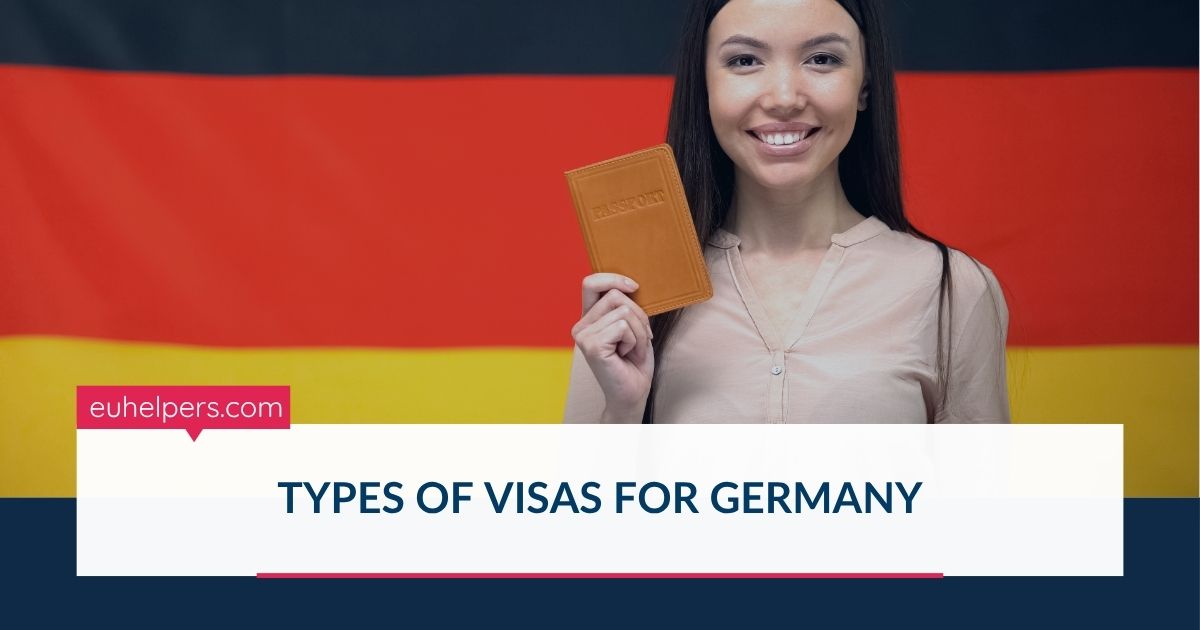
Germany offers a wide range of visa options tailored to the specific needs and purposes of international visitors and residents. Whether you’re planning a short trip or a long-term stay, understanding the different types of German visas is essential for a smooth and legal entry into the country. Visas are generally divided into two main categories: short-term (Schengen) visas and long-term (national) visas.
Short-Term Visas (Schengen Visas – C Visa)
Short-term visas, also known as Schengen visas, are intended for stays of up to 90 days within a 180-day period. These are suitable for tourism, business trips, or family visits and allow travel across the entire Schengen Area.
1. Airport Transit Visa
This visa is for travelers who are transiting through a German airport en route to a non-Schengen country. It is only valid for staying within the international transit zone of the airport.
2. Schengen Visa
This is the standard short-stay visa for purposes such as:
-
Tourism
-
Visiting family or friends
-
Business trips
-
Attending cultural or sports events
It allows the holder to stay in Germany and other Schengen countries for up to 90 days within a 180-day period.
Long-Term Visas (National Visas – D Visa)
Long-term or national visas are required for stays exceeding 90 days. These visas are usually issued for specific purposes such as work, study, or family reunification. Once in Germany, holders must register and apply for a residence permit.
1. Student Visa
Issued to individuals enrolled in a German university or academic program. It may also be used for preparatory courses prior to full-time study.
2. Language Course Visa
Designed for individuals participating in intensive German language courses, typically lasting several months.
3. Job Seeker Visa
This visa allows skilled professionals to enter Germany and search for employment for up to six months. Applicants must meet certain qualification and financial requirements.
4. Work Visa
For individuals who have already secured a job offer in Germany. Applicants must provide an employment contract and meet qualifications recognized by German authorities.
5. Freelancer/Self-Employed Visa
Intended for freelancers, artists, and self-employed professionals planning to establish their business or work independently in Germany.
6. Family Reunion Visa
Issued to spouses, children, or other family members of German citizens or legal residents who wish to join them in Germany.
7. EU Blue Card
A residence permit for highly skilled non-EU workers with a recognized university degree and a qualifying job offer. The EU Blue Card provides various benefits, including easier pathways to permanent residence.
8. Researcher Visa
This visa is available for scientists and academics participating in research projects or collaborations with German institutions.
9. Business Visa
Although sometimes categorized under Schengen visas, this type of visa may also be issued for longer business-related stays, such as attending conferences, meetings, or negotiating contracts in Germany.
Germany’s visa system is designed to accommodate a broad spectrum of visitors—from short-term tourists to long-term residents seeking work, study, or family reunification. Choosing the right visa depends on the purpose, duration, and nature of your stay. Always check the specific requirements and documentation needed for your visa category with your nearest German embassy or consulate to ensure a successful application process.
